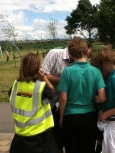Teaching Approaches/Narrative: Difference between revisions
From OER in Education
SimonKnight (talk | contribs) (Created page with "{{teaching approach header}} Coming soon {{teaching approach footer}}") |
SimonKnight (talk | contribs) No edit summary |
||
| Line 1: | Line 1: | ||
{{teaching approach header}} | {{teaching approach header}} | ||
{{Teaching Approach Holding Message}} | |||
{{teaching approach footer}} | {{teaching approach footer}} | ||
Revision as of 12:35, 28 September 2012
- Active learning
- Applying and consolidating
- Argumentation
- Assessment
- Classroom management
- Collaboration
- Curriculum development
- Curriculum planning
- Dialogue
- Differentiation
- Discussion
- Drama
- Exploring and noticing structure
- Games
- Group talk
- Group work
- Higher order
- Homework
- Inclusion
- Inquiry
- Introduction
- Investigation
- Language
- Learning objectives
- Mathematical thinking
- Modelling
- Narrative
- Open ended
- Planning
- Planning for interactive pedagogy
- Planning for professional development
- Posing questions and making conjectures
- Questioning
- Reasoning
- Reasoning, justifying, convincing and proof
- Scientific method
- Sharing practice
- The ORBIT Resources
- Thinking strategically
- Visualisation
- Visualising and explaining
- Whole class
- Working systematically
Template:Teaching Approach Holding Message
Relevant resources
| Astronomy | Celestial Wanderers | |

|
Why would we fly to another planet to study its rocks? Drawing on a rich range of sources, this presentation allows the teacher to introduce planetary geology(topic), something not normally studied until degree level. It uses the narrative(ta) of the Voyager Probes journey to illustrate the vastness of the solar system(topic) and also the challenges of designing a spacecraft to travel that far. It ends with a discussion of the history(topic) of Mars, and how the differences between it and the Earth resulted in Mars loosing its water and atmosphere whereas we have kept ours.
| |
| QR codes | Editing Using QR Codes to Engage Children with Learning | |

|
Children using digital literacy to engage with reading and writing This lesson idea uses technology to promote active learning(ta) as resources were produced to be located and explored in a public park. The early stage of the activity, involving the creation of the resources by the children, required discussion(ta) involving the whole class(ta). Group talk(ta) was also employed as a strategy, with the children agreeing on a narrative(ta) outline relating to the event. The creation of the online materials encouraged development of e-skills(topic).
The later stages of activity, where the children were looking for clues, required them to ask questions(ta) and to take a collaborative(tool) approach to find a solution, based on the digital texts they found. | |
| Using images | Organising images for a narrative | |

|
Write an essay without words The lesson encourages students to think about how to portray their knowledge through narrative(ta) - which may engage some students who would usually be less interested. The lesson encourages students to think about how to capture valuable information and ensure that key elements are highlighted while not 'overloading' the viewer with data. The lesson can be tailored to any age group - for younger pupils the task could be to take before and after photos and label them. More advanced pupils might explore time-lapse photography. Pupils should be encouraged to think about how this relates to the scientific method(ta) The task is interactive and could be conducted as a group work(ta) activity or as an element of an inquiry-based learning project. It could also lend itself to whole class(ta) dialogue(ta) and the use of ICT(i) including 'clicker' response systems for assessment(ta) and questioning(ta).
| |
